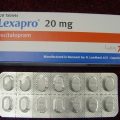The word “horny” is a slang term for wanting to have sex or being sexually aroused or excited. (You might be thinking of the word “ornery,” which means disagreeable or mean.)
Having a sex drive, desiring sex, and being turned on are normal parts of sexuality. People have different levels of sex drives — some have higher drives and some have lower.
In the beginning of adolescence, sexual desire and sexual arousal may seem a little out of control. But after a while, as people become accustomed to them, they seem less intrusive and more in their control.
What is Wellbutrin (bupropion)?
Wellbutrin is an antidepressant that treats a number of conditions. It comes as an immediate-release, sustained-release, or extended-release tablet that is taken orally. One factor that makes Wellbutrin especially unique among antidepressants is that it doesn’t tend to affect your libido and sexual function. In fact, it’s often prescribed along with other antidepressants to help counter the sexual side effects found in other types like loss of desire.
Wellbutrin is approved by the Food and Drug Administration (FDA) to treat major depressive disorder (MDD) and seasonal affective disorder (SAD). Wellbutrin is also used off-label to help with symptoms of attention-deficit/hyperactivity disorder (ADHD), bipolar disorder, anxiety, and obesity.
Additionally, another brand of bupropion (the active ingredient in Wellbutrin) called Zyban is used to help people quit smoking. Other off label uses sometimes include social anxiety disorder, PTSD, and even some forms of nerve pain.
Does Wellbutrin Make You Hornier?
Yes, one reason for this is that Wellbutrin works differently than many other antidepressants. Rather than affecting serotonin levels in the brain (which can decrease sex drive), Wellbutrin acts on dopamine and norepinephrine, two neurotransmitters that are involved in arousal and motivation.
According to a study that analyzed the relationship between Wellbutrin, sex drive, low libido, and orgasms in men and women, Wellbutrin at a dose of 150 mg/day to 300 mg/day was found to be just adequate. It was discovered that the male part of the research was able to achieve and sustain an erection. Also, these men were able to have pleasant sexual experiences. What seemed to please the men who used Wellbutrin compared to their counterparts that were placed on placebos, was that they experienced prolonged duration before reaching climax and ejaculating.
But according to Rachel Hess, an associate professor of medicine at the University of Pittsburgh, “For many women and men, Wellbutrin is an excellent drug for sexual dysfunction,” she says, noting that preliminary studies, have found the drug to be useful for women when taken “almost like Viagra, shortly before sex.” She, however, cautions against seeing Wellbutrin as a one-size-fits-all antidepressant and sexual aid due to the long-term side effects of the drug.
Another study that explored the issue of increased sexual urge related to Wellbutrin reported that a man, who was undergoing the course of antidepressants, had his sexual interest exceedingly heightened. He previously had been taking Wellbutrin to manage his depression. The patient was scared and wanted to stop taking the drug, but he first sought the counsel of his healthcare provider. However, studying his medication history properly, it was discovered that sertraline also had been introduced into his regimen previously. The physicians discovered it was the Selective Serotonin Reuptake Inhibitor that had caused the hypersexuality, but not Wellbutrin.
However, it’s important to note that everyone’s experience with medication is different, and some people may still experience changes in their sex drive or other sexual side effects while taking Wellbutrin. If you have concerns about how Wellbutrin may be affecting your sex drive or any other aspect of your health, it’s best to speak with your healthcare provider. They can provide more personalized guidance and support.
What Are The Possible Side Effects Of Using Wellbutrin For Sex?
Common side effects
Headache, weight loss, dry mouth, trouble sleeping (insomnia), nausea, dizziness, constipation, fast heartbeat, and sore throat. These will often improve over the first week or two as you continue to take the medication.
Rare/serious side effects
Less than 10% of patients will experience skin rash, sweating, ringing in the ears, shakiness, stomach pain, muscle pain, thought disturbances, anxiety or angle closure glaucoma (symptoms of angle closure glaucoma may include eye pain, changes in vision, swelling or redness in or around eye).
Unlike many antidepressants, Wellbutrin does not commonly cause sexual side effects and may be selected as an alternative treatment when antidepressant-induced sexual side effects are problematic. Sexual side effects include such problems as difficulty achieving orgasm or ejaculatory delay.
In general the risk of seizures due to bupropion is low. The risk of having a seizure increases with higher than recommended doses of bupropion, a history of seizures or head injury, tumor in the brain, severe liver disease, an eating disorder, alcohol or drug dependence, or taking other drugs that can also increase your risk of having a seizure.
There is a low risk of cardiovascular adverse events associated with stimulating agents, including bupropion. This risk increases if you have heart disease, high blood pressure, previous heart attack, or irregular heartbeat, or when used with transdermal nicotine replacement products. In these cases, a thorough cardiovascular evaluation is recommended before starting this medicine.
Are There Any Risks For Taking Bupropion For Long Periods Of Time?
To date, there are no known problems associated with long term use of bupropion. It is a safe and effective medication when used as directed.
What Other Medications May Interact With Bupropion?
Bupropion should not be taken with or within two weeks of taking monoamine oxidase inhibitors (MAOIs). These include phenelzine (Nardil®), tranycypromine (Parnate®), isocarboxazid (Marplan®), and selegiline (Emsam®).
There are several products with the active ingredient bupropion. Do not take more than one product that contains bupropion since this may increase your risk of having a seizure.
Certain medications may increase your risk of having a seizure when combined with bupropion. These include other antidepressants, antipsychotics, theophylline, isoniazid, tramadol, stimulants, steroids, hypoglycemic agents (including insulin), certain antibiotics (e.g., Ciprotab, and abrupt discontinuation of benzodiazepines (e.g., Ativan®).
Notify your doctor and pharmacist if you are taking any of the following medications: phenytoin (Dilantin®), carbamazepine (Tegretol®, Equetro®), phenobarbital, cimetidine (Tagamet®), ritonavir (Norvir®), lopinavir (Kaletra™), nelfinavir (Viracept®), or efavirenz (Sustiva®). These medications can change the way your body reacts to bupropion. ALSO READ: Does Xanax Make You Horny?





